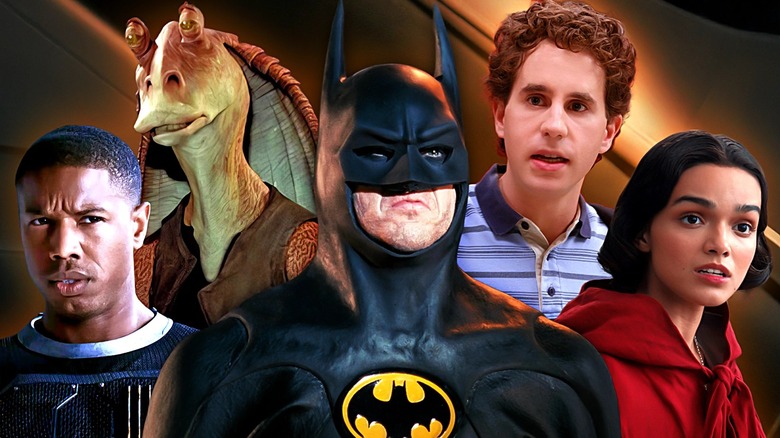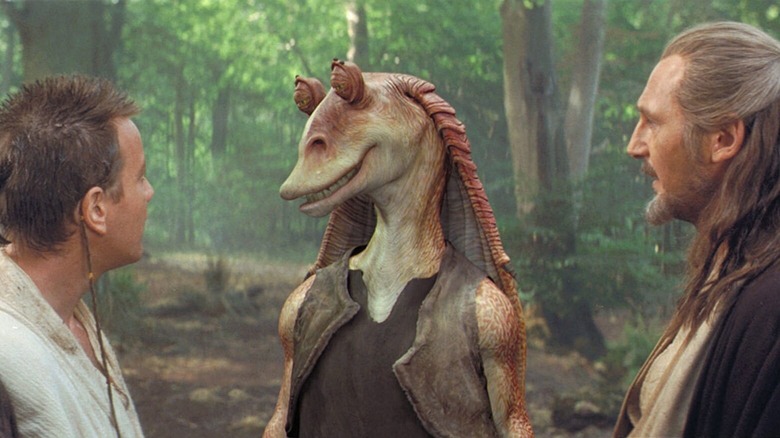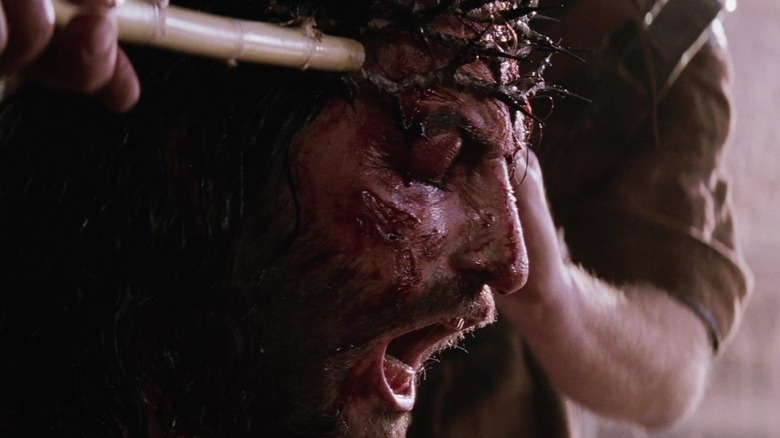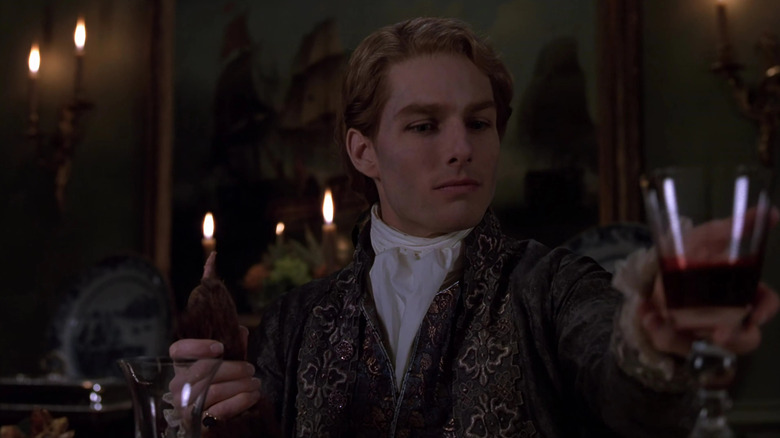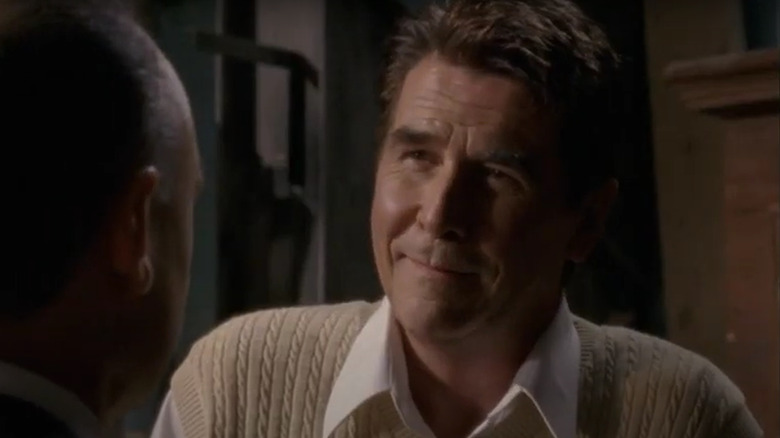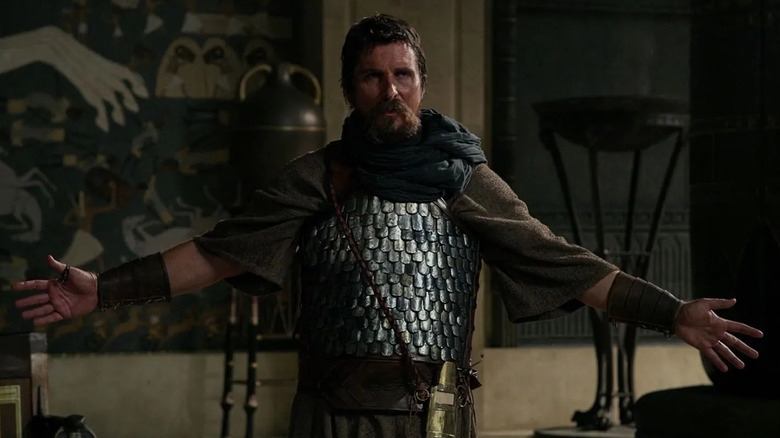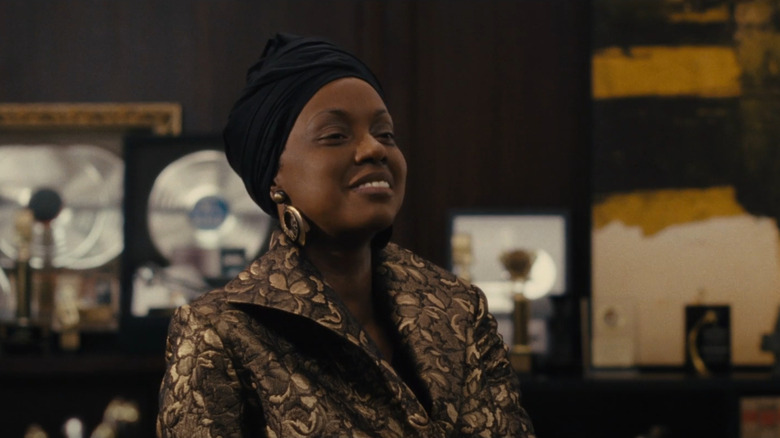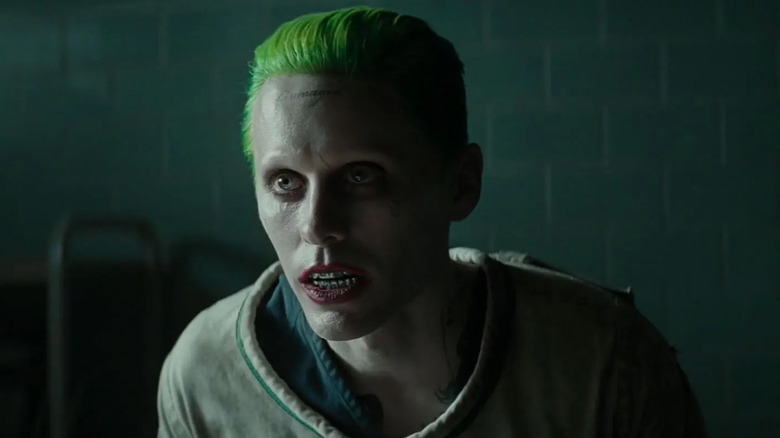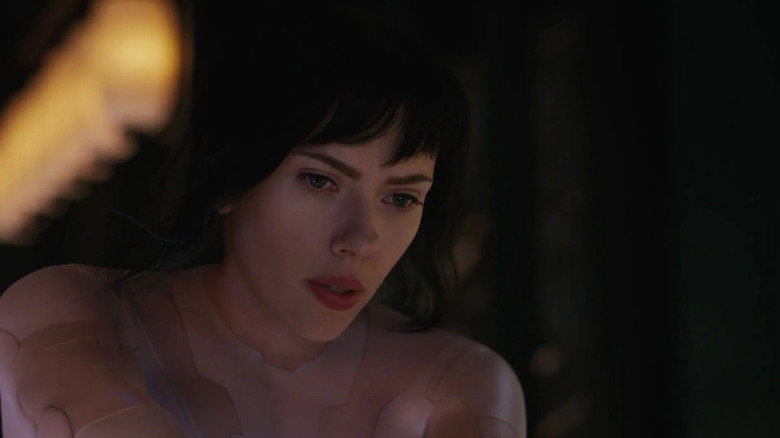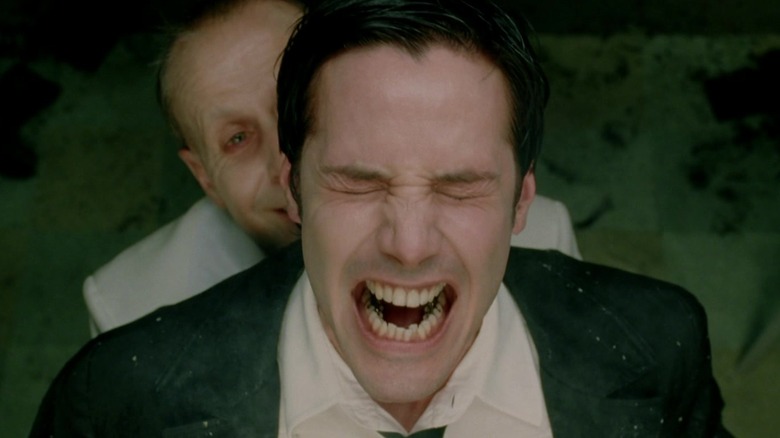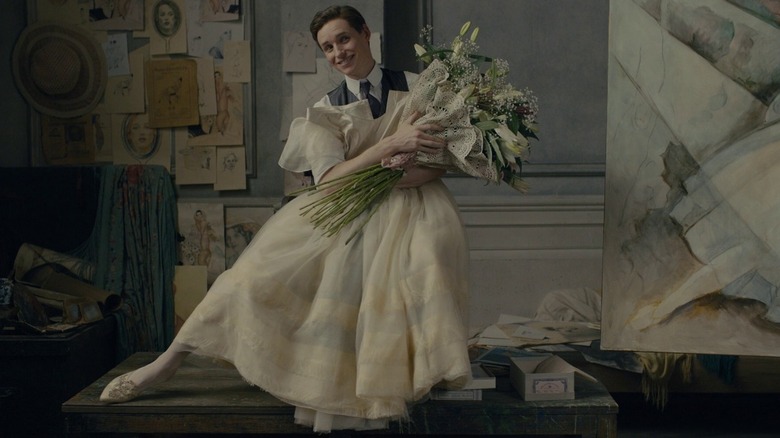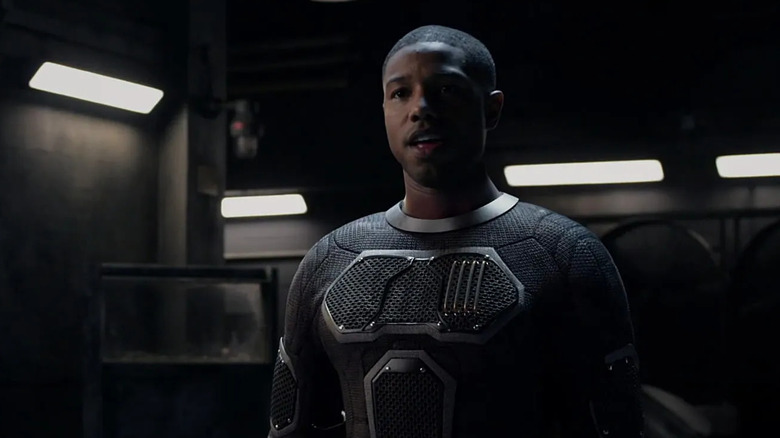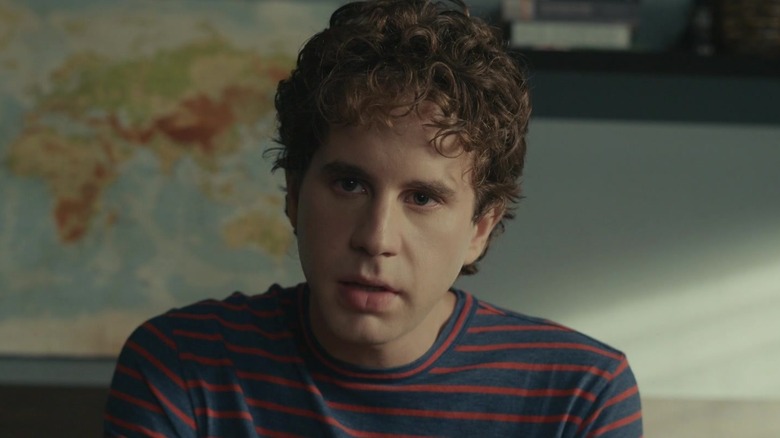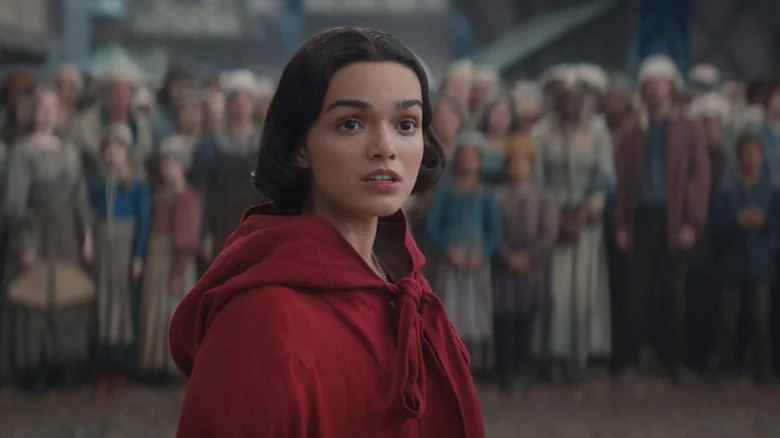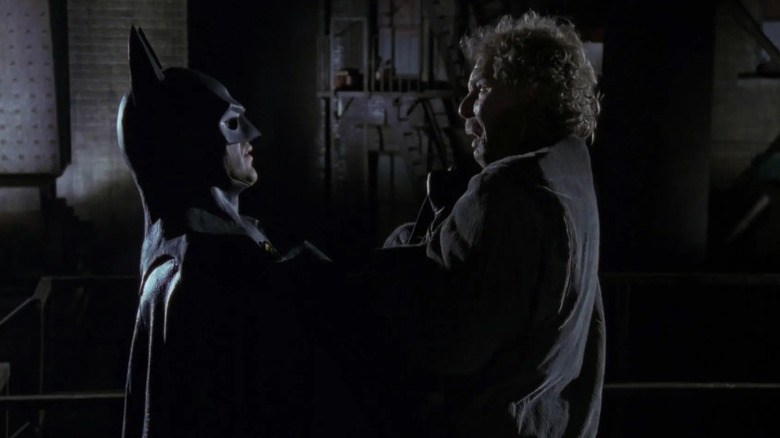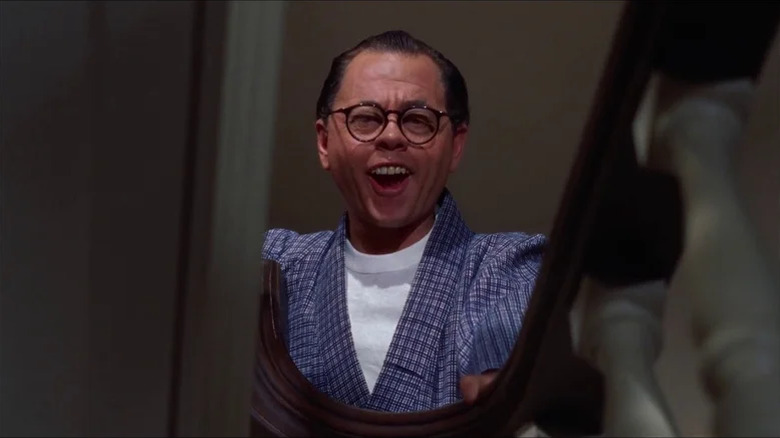15 Actors Who Faced Backlash For Accepting Controversial Roles
Oh, for the life of a movie star! To be able to pretend for a living, and in return face the adulation of an adoring public! Except, of course, when one doesn't.
No actor sets out to make a failure, and few seek to be hated, but many over the years have taken on roles that showered them in backlash. Whether it was the role itself that was deemed inappropriate or their particular performance of it, some actors have been associated with roles that risked alienating huge chunks of the public. Some dealt with it better than others: it comes with the territory for veterans but can be devastating for newcomers every so often, though the scorn is deserved.
Some of the names listed below managed to turn things around and prove the haters wrong. Others dug in and made things worse. However they took it, here are 15 of the most prominent actors to face backlash for controversial roles.
Ahmed Best as Jar Jar Binks (Star Wars Episode I: The Phantom Menace)
Hired off of his stage success as a cast member of "Stomp," Ahmed Best was set to break new cinematic ground by playing the first completely computer-generated main character in a major motion picture. But even before "The Phantom Menace" came out, Jar Jar Binks was making fans uneasy, as his dialogue, and other lines uttered by his talking action figure, sounded like a borderline offensive caricature of Jamaican-style pidgin English. When the movie came out, it got worse: Jar Jar's frenetic slapstick and screaming reminded critics of minstrel actors like Stepin Fetchit. Best, of course, was just playing the part as written, trying to emulate Buster Keaton and Goofy, using a voice that he had created to entertain his younger cousins.
Jar Jar soon became a hate magnet for every problem fans had with the movie, while Best was driven to depression after receiving death threats and being accused of racism. Jar Jar was originally meant to be a major character throughout the "Star Wars" prequel trilogy, but after the backlash, his role was minimized.
Best is better now, and recently played Jedi master Kelleran Beq in "The Mandalorian."
Jim Caviezel as Jesus (The Passion of the Christ)
Numerous actors from Jeffrey Hunter in "King of Kings" to Jonathan Roumie in "The Chosen" have portrayed Jesus Christ without backlash. The problem for Jim Caviezel was that he was specifically playing Mel Gibson's take on Jesus.
Gibson's "The Passion of the Christ" proved controversial from the get-go. He shared the same conservative Catholicism as his openly anti-Semitic father Hutton. He also used the visions of problematic nun Anne Catherine Emmerich as partial source material, depicted Satan as nonbinary, and emphasized the Gospel of John's blaming Jewish leaders more than the Romans for the crucifixion. Gibson met with Jewish leaders to try to address concerns but lost all plausible deniability the year after the movie came out when he was arrested for drunk driving and started yelling anti-Semitic slurs.
Caviezel claimed the major acting offers stopped coming after that. He made a comeback, however, in conservative and Christian films like "Sound of Freedom," with the Nativity film "Zero A.D." up next as of this writing. He and Gibson still plan a potential "Passion" sequel.
Tom Cruise as the vampire Lestat (Interview with the Vampire)
These days, it seems like Tom Cruise can do no wrong in the eyes of the moviegoing public. In 1994, though, author Anne Rice and many of her fans were extremely upset that he had been cast to play her vampire antihero Lestat in the long-awaited, big-budget adaptation of her novel, "Interview with the Vampire." Rice liked Rutger Hauer or Jeremy Irons for the role, fearing that Tom Cruise was only interested in doing a generic monster movie. She came out very publicly against his casting, but director Neil Jordan felt Cruise's celebrity persona made him right for the role.
At first, it seemed like the backlash might hurt the film, as Oprah Winfrey infamously walked out of an advance screening. Ultimately, though, audiences loved seeing Cruise stretch as an evil vampire. In an unlikely turn of events, Rice changed her tune and publicly praised Cruise's performance.
James Brolin as Ronald Reagan (The Reagans)
Ronald Reagan was one of the oldest U.S. presidents, so it can be challenging to find name actors who are still active at the same age to play him. In theory, James Brolin was the right type, still healthy, and with both amiable and tough-guy sides to portray the great communicator and cold warrior aspects of the 40th U.S. president. Then bits of the script from the planned CBS miniseries "The Reagans" leaked, and conservative pundits were infuriated. Scenes depicting Reagan as callous towards AIDS patients and his wife Nancy (Judy Davis) effectively running the White House induced charges of left-wing revisionist bias. Furthermore, since Brolin was married to prominent outspoken Democrat Barbra Streisand, right-wing pundits insisted he'd be inherently biased in his portrayal.
CBS ultimately canceled the miniseries, claiming they had determined it was not evenhanded enough. Showtime subsequently aired it as a movie, deleting a homophobic line that nobody could prove Reagan said. The final movie still depicts him as indifferent to AIDS but gives him credit for breakthroughs in U.S.-Soviet relations.
Christian Bale as Moses (Exodus: Gods and Kings)
Christian Bale was hardly the first white man cast as Moses. Theodore Roberts played him in 1923's "The Ten Commandments," followed by Charlton Heston in the 1956 remake, and Val Kilmer in the 1998 animated film "The Prince of Egypt." Times change, however, and in 2014, Ridley Scott wanted his version of the story to be a historically plausible epic.
There was only one exception: The casting. While he may have tried for period-accurate production design, he definitely did not cast Israeli and Egyptian actors in the lead roles. When faced with criticism for his mostly white choices, Scott didn't exactly help his case by telling Variety, "I can't mount a film of this budget, where I have to rely on tax rebates in Spain, and say that my lead actor is Mohammad so-and-so from such-and-such ... I'm just not going to get it financed." Bale himself blamed audiences for not having supported enough Middle Eastern and North African actors to make any of them bankable A-listers on his level.
After receiving mostly negative reviews, the film was only modestly successful.
Zoe Saldana as Nina Simone (Nina)
Now that Zoe Saldana is an Oscar winner for her singing, dancing, and multilingual role in "Emilia Perez," it may seem surprising that she was considered a bad match to play a famous musician. Still, there's a reason you probably haven't seen 2016's Nina Simone biopic "Nina," in which Saldana portrays the singer as a mentally ill, violent alcoholic. Not that that was the main problem.
No, the issue was with Saldana being Afro-Latina, while Simone had fought all her life against being stereotyped for her dark skin and strong African features. Simone's daughter, Simone Kelly, was particularly upset, and Saldana ultimately using special makeup to alter her skin color and face didn't make things any better. Nor did the fact that writer-director Cynthia Mort, who had originally worked with Mary J. Blige as the potential star, sued two years before the movie came out because she had been cut out of the decision-making process.
Critics and the Simone estate trashed the film. Saldana ultimately apologized, saying she never should have taken the role.
Jared Leto as the Joker (Suicide Squad)
Joaquin Phoenix and Heath Ledger both won Oscars for portraying different versions of the Joker on film. Jack Nicholson was nominated for a Golden Globe. Jared Leto, not so much. Though he had won an Academy Award, public opinion started to turn a little bit when stories started leaking out about Leto being so method that he would never break character. While apparently in character as the Joker, Leto supposedly gave his cast members horrific "gifts," like a used condom, a dead pig, or a live rat. He later claimed he was joking, though his castmates have contradicted this, with Margot Robbie claiming she kept the pet rat that he now says he never gave her, although if he did, it was a mouse.
Leto's Joker was already controversial for the character's unusual appearance, with director David Ayer giving him an L.A. gangster-style makeover, sporting metal teeth and tattoos. Ayer initially took responsibility for the poorly received movie but later claimed it had been recut by the studio to be very different from his intent. Fans and critics gave it a thumbs-down and many soured on Leto thereafter — his subsequent cameo in "Zack Snyder's Justice League" was mostly mocked.
Scarlett Johansson as Major (Ghost in the Shell)
Fans of any incarnation of the "Ghost in the Shell" franchise, be it TV, movies, or manga, know that the protagonist is a Japanese cyborg named Major Motoko Kusanagi. When an American remake set in Japan was announced, most expected that she would be portrayed by a Japanese or Japanese-American actress. Instead, they got Scarlett Johansson, playing a version of the character named Mira Killian. Mamoru Oshii, director of the original anime film had no issue with it, but "whitewashing" is generally less of an issue in the more homogeneous Japan. Stateside, there was a bit more of an outcry.
Ironically, the movie itself deals with the issue, but towards the end, so it's a bit of a spoiler. Killian finds out that the human brain inside her robotic body is actually that of a Japanese girl named Motoko Kusanagi; Hanka Robotics gave her a body that they found more commercial and aesthetically pleasing, essentially in-universe whitewashing the human being.
Keanu Reeves as John Constantine (Constantine)
Alan Moore's John Constantine is a very English character, a blond, smoking, swearing, working-class occultist in a trademark brown trenchcoat, designed by artists Steve Bissette and John Totleben to resemble rock star Sting. In 2005, however, major movie studios didn't concern themselves all that much with comic-book accuracy, and they cast Keanu Reeves in a black suit. Reeves, who'd had issues with an English accent in "Bram Stoker's Dracula," simply played him American. Perhaps the one major concession he made was that his version of the character also smoked.
"Constantine" proved to be a breaking point for Moore and Hollywood, and he refused credit, royalties, or any association with the film, a pattern he'd continue thereafter. Nonetheless, it did decently at the box office and has subsequently been accepted by many fans as an acceptable "multiverse" take on Constantine, to the point that Reeves and director Francis Lawrence still discuss the possibility of a sequel.
Eddie Redmayne as Lili Elbe (The Danish Girl)
"The Danish Girl" is adapted from a speculative novel based on the true story of one of the first people to ever undergo gender reassignment surgery. Lili Elbe (Eddie Redmayne), assigned the name Einar Wegener at birth, stands in for a female model for her spouse, artist Gerda Wegener (Alicia Vikander), and realizes she's what we would today call a trans woman. The movie deals with the evolution of their relationship as Lili first seeks counseling, then acceptance and surgery to become her true self.
Lili remains pre-op for most of the movie, which was in development for over seven years, and according to all involved, needed a name actor to get funding. When it finally saw release in 2015, the casting of a cis man to play a trans woman was no longer seen as a daring stretch, but rather a casting choice that excluded trans actresses from appropriately playing the part. Vikander won the Oscar for Best Supporting Actress; Redmayne expressed doubts about his own role, and in 2021, ultimately admitted that he should not have taken it, though it did garner him his second Oscar nomination for Best Actor.
Michael B. Jordan as Johnny Storm (Fantastic Four)
Colorblind casting in comic-book movies isn't especially surprising nowadays, but that's partly because of Michael B. Jordan. Before he was the A-list star of "Creed" and co-star of "Black Panther," he appeared in Josh Trank's found-footage superhero film "Chronicle," which likely landed him the role of Johnny Storm, the Human Torch, in Trank's "Fantastic Four" (often stylized as "Fant4stic"). The director wanted both Johnny and Sue Storm to be Black to reflect modern, diverse demographics, but the studio would only let him have Johnny, making Sue and Johnny adopted siblings. It didn't help perceptions with fans that Trank didn't know the comics at all, having seen only the cartoons when he was younger.
Jordan weathered the online criticism of his casting well; Trank reacted by sleeping with a gun on his nightstand. In the end, Jordan turned out to be one of the movie's bright spots, after battles between Trank and 20th Century Fox made the final edit a mess. Conflicting visions — Trank wanted David Cronenberg-ish body horror and Fox wanted superheroics — proved far more problematic than the casting.
Ben Platt as Evan Hansen (Dear Evan Hansen)
Ben Platt originated the role of Evan Hansen on Broadway, workshopping it for three years. The character is a teenager with depression issues who writes letters to himself that get misinterpreted and seemingly drive another teen to suicide, prompting Evan to lie that they were the best of friends. The musical was a hit, and Platt's father Marc produced a movie adaptation of "Dear Evan Hansen," with Ben again in the lead. Unfortunately, Ben at this point was 27 years old, and audiences found it hard to buy him as a convincing teenager. Suspension of disbelief isn't what it was when John Travolta and Olivia Newton-John played teenagers in "Grease," and accusations of nepotism didn't help.
Platt said that he wanted to go online and argue with his haters, but that in the end, the work had to speak for itself. Memes of his crying scenes aside, he has maintained a successful career since, not just as a singer and actor, but also as a writer and producer of the acclaimed comedy feature "Theater Camp."
Rachel Zegler as Snow White (Snow White and the Seven Dwarfs)
There's a whole mini-ecosystem of YouTubers and troll sites ready to generate angry clicks from every possible instance of colorblind casting, but it got extreme for a character who literally has a name traditionally based on race — Snow White, whose skin is as white as snow. The live-action remake of Disney's "Snow White and the Seven Dwarfs" changes things, having the character be named after a blizzard that occurs when she's born. That didn't satiate critics of casting Latina actress Rachel Zegler in the role.
Like many live-action Disney princess actresses before her, Zegler made comments soon after her casting about how the story needed updating from the 1930s — a valid statement, but one that her haters seized upon. Add to that a comment she made in support of Palestine, in contrast to co-star Gal Gadot who previously served in the Israeli military, and those who disliked her could suddenly latch on to more than just her race as a basis for criticism.
Never mind that the CG dwarfs had a creepy, uncanny valley effect going on; the movie's lack of success was unfairly and disproportionately blamed on Zegler.
Michael Keaton as Bruce Wayne (Batman)
In 1986, Frank Miller's comic miniseries "The Dark Knight Returns" revived Batman as an older, angrier avenger in a grim, dark version of Gotham reflecting the worst excesses of the '80s. Warner Bros., having worked for years on trying to make a "Batman" film that could be the equivalent of Richard Donner's "Superman," seized the moment.
Fans wanting a tortured Bruce Wayne were aghast by the news, however, that Michael Keaton would star in the Tim Burton-directed film. Keaton was best known for comedies like "Mr. Mom," and he also had a receding hairline and a physique that wasn't exactly by the (comic) book. The fear was that Warner Bros. still thought of Batman as a camp, comedy character from the '60s TV series with Adam West, rather than a serious, brooding vigilante. Angered comic lovers sent petitions to the studio to recast, though more were happy with the idea of Jack Nicholson as the Joker.
Initial images of Keaton in an intimidating muscle suit calmed the haters somewhat, and the first trailer made clear the movie would be dark and heavily sci-fi-influenced. Backed by a massive merchandising push, the film was a huge success, and Keaton's portrayal of a more unhinged Batman ultimately won audiences over, despite the occasional wisecrack. When 2023's "The Flash" brought him back to the role, Keaton was welcomed like a returning hero.
Mickey Rooney as Mr. Yunioshi (Breakfast at Tiffany's)
"Breakfast at Tiffany's" is one of the all-time classic rom-coms, a dual Academy Award winner, and preserved on the Library of Congress' National Film Registry, in addition to being the subject of an earworm of a pop song. if only it didn't have that one glaringly racist caricature of a Japanese man, played by a squinting Mickey Rooney with large fake teeth.
Writer George Axelrod wanted to expand the character of Mr. Yunioshi from the novel, while producer Richard Shepherd would later claim he had wanted a Japanese actor to portray him. All involved, including Rooney, blame director Blake Edwards for wanting the character to be a broad caricature, and indeed, at the time, most audiences seemed to laugh. Only around the 1990s did prominent non-Asians start seeing the problem too, especially when the biopic "Dragon: The Bruce Lee Story" depicted Bruce Lee (Jason Scott Lee) being offended at American media's depiction of Asians.
"Breakfast at Tiffany's" came out in 1961, but after many years of defensiveness, both Edwards and Rooney came to regret the glaringly awful bit of yellowface that mars the rest of the otherwise classic film to this day.
